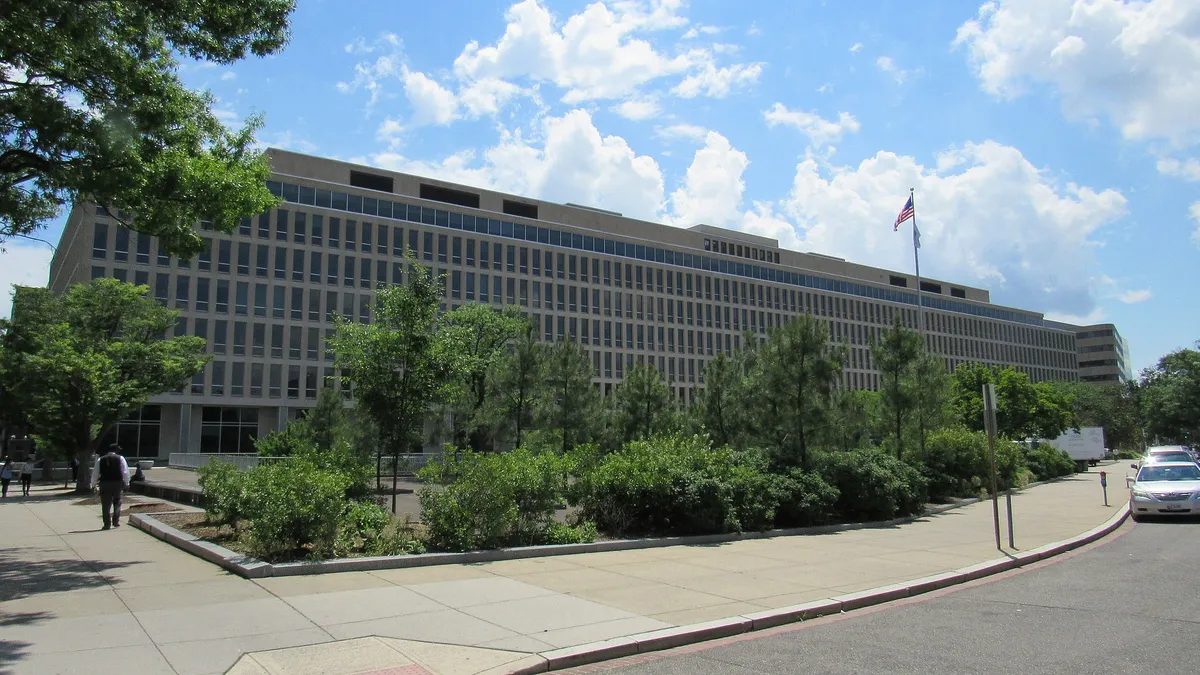Dive Brief:
- Sixteen experts and advocacy organizations in higher education are calling for stricter U.S. Department of Education oversight of accreditors, particularly in how they handle colleges with poor student outcomes.
- The groups and individuals wrote to the Education Department late last month recommending ways to make the evaluation process for accreditors more transparent and asking agency officials to more closely scrutinize several major accreditors up for review in February 2023.
- Among their suggestions were that the Education Department should make certain documents public early in the process of accreditors seeking department approval, that it should spend more time reviewing accreditors that control access to federal financial aid funds than to those that do not, and that it should develop new regulations to make sure accreditors consider how institutions are serving disadvantaged students.
Dive Insight:
Critics have long argued the accreditation system is broken. Accreditation attempts to ensure the health of colleges' academic offerings and financial operations, and it greenlights institutions to access Title IV federal financial aid.
But some say accreditors have little incentive to punish institutions in their purview, as colleges pay the accrediting agencies for membership. Kicking them out could therefore dry up revenue.
The federal government has also not always punished accreditors that have allowed colleges with poor student outcomes to continue operating.
Education Department staff evaluate whether accreditors remain compliant with federal standards and then recommend whether the department should continue to recognize them.
Next, an advisory board, the National Advisory Committee on Institutional Quality and Integrity, or NACIQI, decides whether to support that recommendation. A senior Education Department official makes the final decision whether to offer recognition.
But the letter's signatories, which include The Institute for College Access and Success and left-aligned think tanks New America and Third Way, wrote that "the current process leaves the public with limited ability to understand and comment on accreditors" under review.
They also cited a U.S. Government Accountability Office report first issued in December 2014 that found colleges with weak student outcomes on average were no more likely to be sanctioned by accreditors than those with stronger outcomes.
The letter states that a failure to adequately oversee accreditors partially stems from the way NACIQI reviews them and the way the panel limits public comment of accreditors' performance.
When accreditors are seeking department approval, the agency publishes documents related to their operations. But the groups in the letter say those materials should be released earlier and the senior department official making the final decision on accreditors should consider public comments at all stages of the process.
They draw attention to several accreditors who will have their status with the department evaluated in February 2023. One, the Higher Learning Commission, oversees a high number of colleges with low student outcomes. The letter states that of 876 HLC institutions with earnings data available, 299 colleges graduate students who earn less than the typical high school graduate earns.
The Education Department under the Trump administration declined to sanction HLC in 2020, despite department staff recommending otherwise. The case concerned HLC's handling of accrediting two Art Institutes that were initially run by a for-profit network but were transferred to a nonprofit operator.
A spokesperson for the department did not provide comment on the new letter by publication time Monday.













